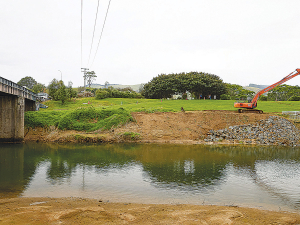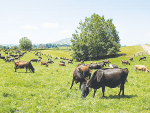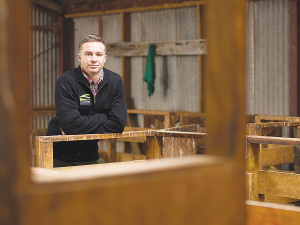This should be the decade to focus on sediment loss to reduce its impact on the wider environment.
Sediment is one of the consequences of erosion, which is especially an issue right now given the intensity and number of recent severe weather events which have resulted in soil saturation and no capacity for further absorption of new rainfall.
These factors are exacerbating the risks of landslides, slumping, mass-movement erosion, and sedimentation.
Erosion is the process whereby the land surface is worn away by the action of water, wind, or other geological processes. The resultant displaced material is known as sediment. Sedimentation is the deposition of this eroded material, the impact of which has been evident in the recent cyclones and other severe weather events.
Minimising natural and induced erosion and maintaining good soil quality are essential for maintaining soil ecosystem services such as nutrient and water holding capacity, maintaining productive capacity, assimilating waste and minimising impacts of sediment and contaminants on water bodies.
There’s a mix of factors influencing soil erosion – climate, soil characteristics, topography, ground cover and evapo-transpiration – that can be addressed through your farm plans. The main soil quality issues in the Waikato region are soil compaction, excessive nutrient levels, and loss of soil organic matter.
Climate affects erosion potential both directly and indirectly. The direct relationship arises from the action of rain – a driving force of erosion – where raindrops dislodge soil particles and runoff carries them away.
Soil characteristics are important in determining soil erodibility. Good soil structure increases water permeability and water holding capacity. Soil permeability refers to the ability of the soil to allow air and water to move through it. Soils with a higher permeability produce less runoff at a lower rate than soils with low permeability.
When soil surface is compacted or crusted, water tends to runoff rather than infiltrate. Erosion potential increases with increased runoff.
Topography – slope length and slope angle – are critical factors in erosion potential because they play a large part in determining the velocity of runoff.
Soil erosion can be managed by mechanical and biological methods. Mechanical measures – such as terracing, debris dams and other engineering structures – have an immediate effect and operate at maximum efficiency, but their construction and maintenance costs will be high. Biological methods, such as use of live vegetation established from cuttings, rooted plants and poles, are relatively cheaper but their immediate effect is smaller. However, once established the vegetation provides a self-perpetuating and increasingly effective permanent control.
Poplar and willow poles are ideal to plant on erosion-prone hillsides as their extensive root systems bind and hold the soil in place. Some varieties are also used to provide shelter and windbreaks. Successful establishment of poles requires careful handling, storage, siting, planting, and follow-up management. Waikato Regional council can provide you with advice and assistance on planting willow and poplar poles/bare rooted plants to ensure the best possible strike and survival rates.
Poplar and willow poles are ideal to plant on erosion-prone hillsides as their extensive root systems bind and hold the soil in place. Some varieties are also used to provide shelter and windbreaks. Successful establishment of poles requires careful handling, storage, siting, planting, and follow-up management. Waikato Regional council can provide you with advice and assistance on planting willow and poplar poles/bare rooted plants to ensure the best possible strike and survival rates.
The council’s catchment management officers are also available to provide advice on soil conservation, riparian management, and other good land management practices.
Bala Tikkisetty is the principal sustainable agriculture advisor at Waikato Regional Council. Contact him on 0800 800 401 or email This email address is being protected from spambots. You need JavaScript enabled to view it.


















